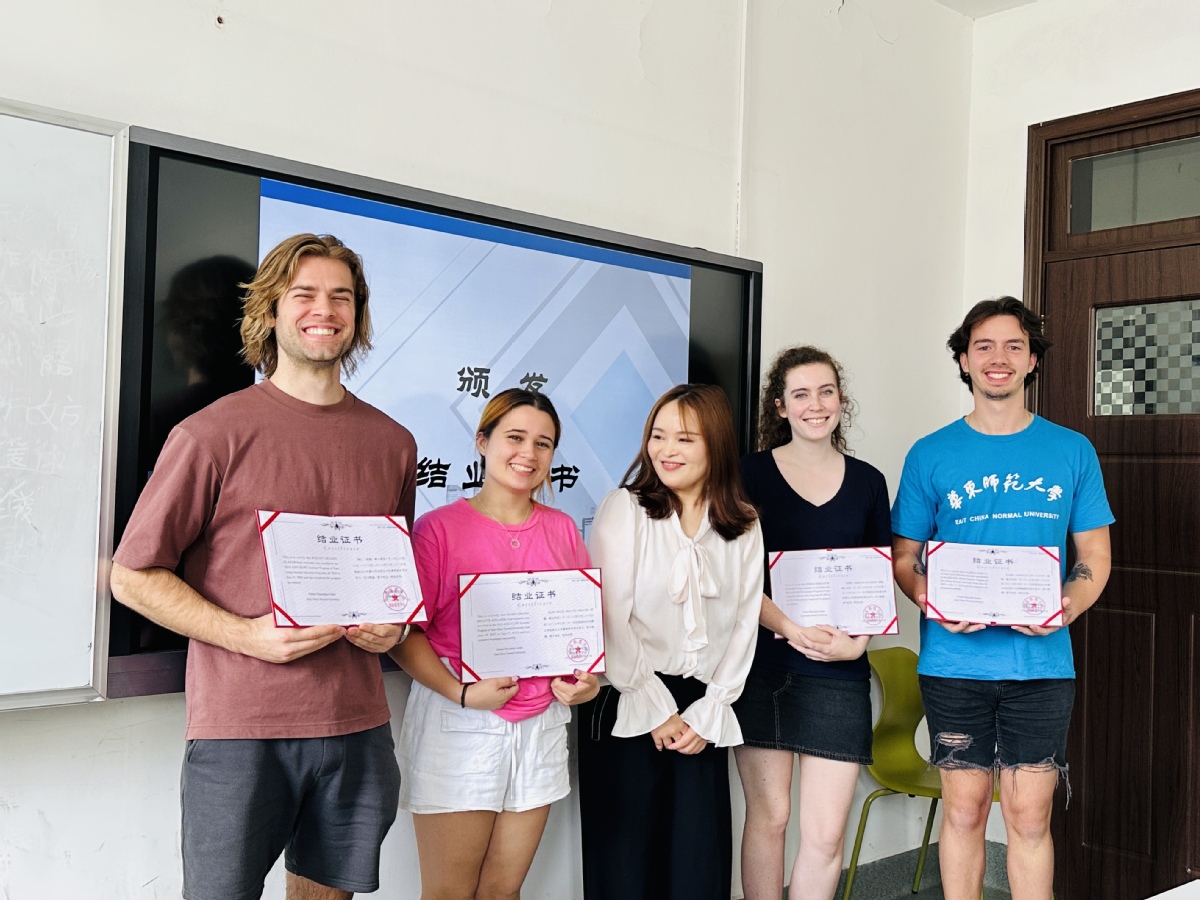Vice-premier supports Mandarin language learning to go global


China will continue to support international Chinese language education to ensure its global development, Vice-Premier Ding Xuexiang said during the World Chinese Language Conference in Beijing on Saturday.
The country should strengthen two-way communication between Chinese and other languages, and support young people from other countries to visit China and experience Chinese culture, Ding said at the conference's plenary session.
The three-day conference, which began on Thursday, had the theme "Chinese for the World, Openness into the Future". It attracted some 2,000 guests from China and abroad, including government officials and experts on Chinese language education.
Several panels and forums discussed issues such as the development of Confucius Institutes and academic systems for international Chinese language education.
The results of international Chinese language study could be seen at the first World Young Sinologists Forum on Thursday, with many foreign attendees able to express themselves fluently in Chinese.
Over the past 10 years, nearly 1,000 overseas students from more than 90 countries had opportunities to study in leading higher education institutions in China through the China Studies Program, an official said during the forum.
The program was launched by the Ministry of Education's Center for Language Education and Cooperation, one of the organizers of the conference.
Jing Wei, the center's deputy director, said a large number of young Sinologists have been cultivated who are proficient in Chinese, familiar with foreign languages and cultures, and actively participate in international academic exchanges and cooperation.
Dario Famularo, an Italian postdoctoral researcher at the Beijing Language and Culture University, said Sinologists help the world better understand China and enhance cultural communication.
People cannot fully understand China through the media and the internet, Famularo said.
"I have a more direct understanding of China after living here for 10 years. You cannot know the real China, both positive and negative aspects, just from watching TV or reading stories online," he said.
Anush Minasyan, an Armenian doctoral candidate at Nankai University in Tianjin, said the Chinese language is well-loved by young people in Armenia. "It is a competitive skill in job seeking," she said.
Nearly 10 years ago, she volunteered to learn Chinese at a Confucius Institute in her country.
"Although my parents were not supportive at that time, I was intrigued by Chinese language and culture," she said.
Now majoring in tourism management, she went to Jiangxi province this year as part of an education program.
"That was a great opportunity for us to witness the changes in China amid rural vitalization," she said, adding that she had a better understanding of rural areas after talking with villagers in Chinese.
Lena Abbas Jawad, an Iraqi doctoral candidate and fluent Chinese speaker, is taking part in the China Studies Program at Renmin University of China.
"The HSK program (the Chinese proficiency test) was just launched in Iraq this year, providing a channel for people in the two countries to better communicate," she said.
- China's CR450: A new era of high-speed rail at 400 km/h
- TAN SUO SAN HAO to pioneer future of deep-sea exploration
- Xi's discourses on Chinese modernization published in Japanese
- Officials summoned over alleged garbage bin food served to students
- Caring hearts help to enhance quality special education
- Xi sends condolences to South Korean acting president over plane crash




































